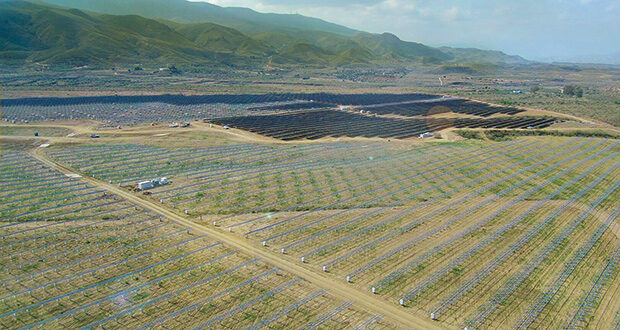SENS LSG, a German-Austrian joint venture in the field of photovoltaics (PV) which was only founded at the end of 2020, is significantly advancing the energy transition in Greece. Together with the LSG Group from Vienna/Austria, SENS is to construct solar PV power plants with a total capacity of 480 MW in Greece in the coming months (Figure 1), and further PV farms shall be developed. STEAG Solar Energy Solutions GmbH, or SENS for short, is based in Würzburg/Germany and is a subsidiary of the energy company STEAG GmbH, Essen/Germany.
With 348 d and 2,800 h/a of sunshine, sunny Greece offers ideal conditions for power generation using solar energy as a renewable source. SENS LSG is now making use of the natural advantages of this location. In a total of nine project clusters together comprising 22 sub-projects, the young joint venture SENS LSG, as the project developer with responsibility for design and construction of the plants as well as O&M services, will establish systems with a capacity of 480 MWp in a first step, with construction scheduled to begin in 2022. Long-standing finance partners Green Source and Core Value Capital are also involved.
“We are pleased to be able to contribute together with our partners to the restructuring of the energy sector, leading to CO2 savings in Greece. With the development of new solar projects, we are building on activities in Greece that started as early as 2010, and would now like to expand our long-standing relationship,” explains Christian Kleinhans, Head of Project Development at SENS, commenting on the Greek venture.
The project not only benefits from the climatic conditions in Greece. The political conditions are also favorable, as the Greek government wishes to make greater use of the country’s enormous PV potential and vigorously press ahead with the energy turnaround before the end of this decade. Under the terms of a National Energy and Climate Plan (NECP), the expansion of wind and solar power is being accelerated, following the country’s extreme dependence on fossil fuels even in the recent past.
Although some progress was made in the development of energy from renewable sources in the last decade, the country’s economic situation and the lack of investment meant that this was initially very slow. The aim of Greek policy is to reduce the country’s greenhouse gas emissions to zero by 2050. That requires a rapid and tangible expansion of renewables. The plan is to build around 10 GW of new wind and solar power plants in Greece by 2030.
This is where SENS LSG’s project comes in and, on the basis of current planning, will play an important role in the intended move to generation from renewables. In this respect, the German-Austrian joint venture is making a significant contribution to the success of the energy transition in Greece (STEAG/Si.)


